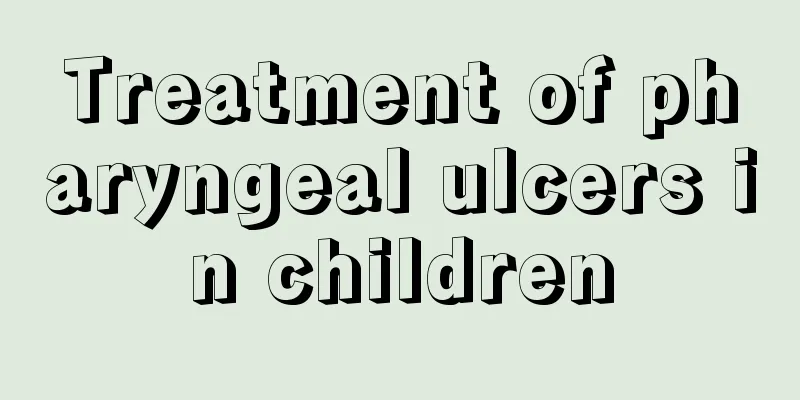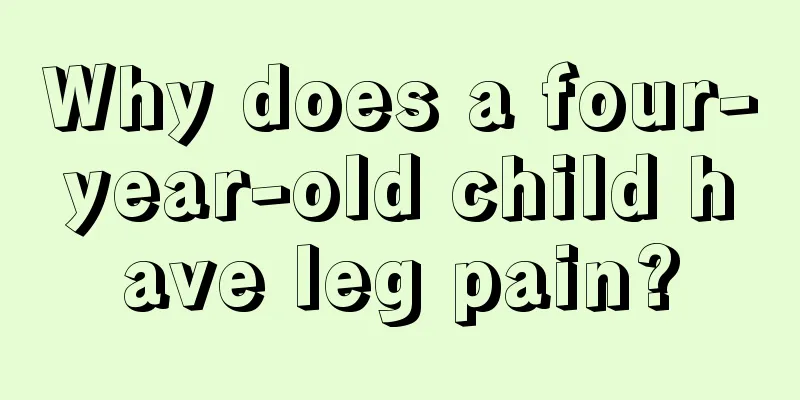What is the age range for children to develop rebellious psychology?

|
Parents often encounter situations where their children develop a rebellious mentality, which is also a very headache for most parents. Once a rebellious mentality appears, the child always behaves in a rebellious manner, never listens to the parents, and often does the opposite, so they often do things that adults cannot understand. So usually, at what age are children most likely to develop a rebellious mentality? Children's rebellious psychology age range: When a child cries and makes a fuss because one of his or her demands or wishes are not met, parents must not surrender because of momentary heartache, but must gently but firmly stick to their principles, love the child but never spoil him or her. A strong rebellious mentality is common among children at this stage. They stay in bed late, don't tidy up their rooms, are picky eaters, procrastinate in doing their homework, watch TV without restraint, hate studying, and love to go against their parents. Parents must remember that rebellion is not the child’s fault. When dealing with children's rebelliousness, the most important thing is the parents' educational method; when facing children's rebelliousness, parents should try their best not to hit, scold or get angry. Children usually start to become rebellious during their first puberty. In fact, as long as parents guide them patiently, are strict but caring with their children, exercise some restraint and cooperate well with the school, the children should be able to get through it smoothly! First rebellious period: 2 to 3 years old A child’s first rebellious period occurs between the ages of 2 and 3, which is the transition from infant to toddler. Before the age of two, a child is a little angel who only knows how to obey the orders of adults. But after the age of two, he will turn into an angry bird at any time and love to go against his parents. The more you ask him to do something, the more he will not do it. He has many little ideas of his own and always tries to implement his ideas. He will lose his temper over the slightest thing and so on. Second rebellious period: 7 to 9 years old 7-9 years old is the stage when children transition from infancy to adolescence. A strong rebellious mentality is common among children at this stage. They stay in bed late, don't tidy up their rooms, are picky eaters, procrastinate in doing their homework, watch TV without restraint, hate studying, and love to go against their parents. This is because after they enter school, they learn a lot of knowledge and have a strong independent consciousness. They think they are little adults and no longer children, so they are eager to break free from their parents' control and thus go against their parents in everything. The third rebellious period: adolescence between 12 and 15 years old From the beginning of puberty, both boys and girls will experience drastic changes in their thoughts and behaviors, becoming stubborn and prickly, self-centered, irritable, prone to temper tantrums, and disobedient. And this force is hormones. Scientists have discovered that hormones make the amygdala, the part of the brain that controls emotions, particularly active. Therefore, adolescent children's emotions can easily be tossed around by hormones, and the late-maturing frontal lobe cannot take control of the situation, making the whole person appear impulsive and irrational. If parents discipline their children by force, it will not only fail to achieve the desired effect, but will also cause children to have strong resistance. |
<<: What causes urine leakage in children?
>>: My child's testicles hurt, what's wrong?
Recommend
Is the smell of pine furniture harmful to babies?
Furniture is an indispensable item in home life, ...
Why does my child's knee hurt when he sleeps?
For a family, the child is the apple of the eye. ...
Why does a child’s penis become red and swollen?
If a child's penis becomes red and swollen, p...
What are the baby's development indicators in one week and four months?
The health of the baby is the greatest comfort to...
Standard for premature infants to eat milk
As we all know, premature babies are weaker than ...
Newborns need early education to develop their five senses
In addition to nutritional supply, the developmen...
What should I do if my 5-month-old baby has bronchitis?
Children's organs are not yet fully developed...
What should you pay attention to when your baby is swimming?
Children's metabolism is very active. Because...
What happens when a child has black stool?
For babies, some organs and systems in their bodi...
Children's toenails are layered, or?
Our nails are normally pink and rosy, but if ther...
Case presentation of renal cyst in children
In our daily life, health care is increasingly va...
What medicine is effective for a 10-year-old child with a fever?
Everyone has experienced a fever, and we all know...
What should you pay attention to when you have chickenpox?
In fact, generally speaking, we will only get chi...
The child has a fever and his pulse is beating fast
It is very common for children to get sick in the...
What should I do if my four-month-old baby has a cold and a stuffy nose?
Cold is a relatively common disease, which usuall...









